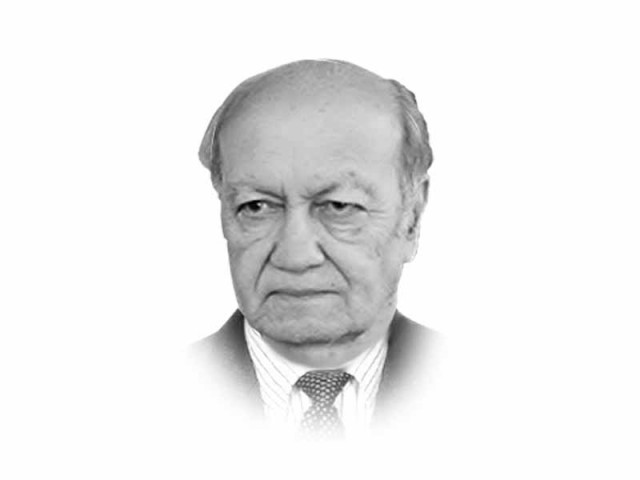The denuclearisation threat
With all sacrifices and investment, Pakistan will not let nuclear assets fall in the hands of militants.

Mutual distrust between the US and Pakistan on nuclear issues has a historical, political and strategic connotation. The United States has been opposed to Pakistan’s acquisition of nuclear weapons from the very beginning and has even pursued coercive policies in this regard. It has imposed sanctions, cut off financial and military aid, and exercised diplomatic pressure and only looked the other way when its immediate strategic interests took priority. It ignored Pakistan developing nuclear capability during the 1980s, when it was a key partner in supporting the insurgency in Afghanistan against the erstwhile Soviet Union, but as soon as the insurgency was over, the US came down hard by invoking the Pressler and Symington Amendments. Grudgingly, as a quid pro quo to Pakistan acting as a front-line state in the war against terror, the US once again lifted the sanctions and reconciled to the reality of a nuclear Pakistan.
Initially, Washington was as much opposed to India’s nuclear build-up, but over the years, its policy dramatically changed as the strategic interests of the two countries converged. The Indo-US nuclear deal and strategic partnership turned out to be another source of mistrust between the US and Pakistan.
Meanwhile, the revelation of the AQ Khan odyssey created new tensions between the US and Pakistan, further aggravating the distrust between them. Pakistan’s cooperation, however, in providing access to the IAEA and to the US to investigate AQ Khan’s proliferation network and the SPD’s (Strategic Plans Division) subsequent serious effort of strengthening the safety and security of Pakistan’s nuclear assets largely contributed to restoring, both the US and the international community’s confidence. Senior officials of the US have since publicly acknowledged that Pakistan’s nuclear weapons and material are safe and secure.
But the with the growing power of the insurgents — the Tehreek-e-Taliban Pakistan, the Lashkar-e-Taiba and other militant groups — and the government’s inability to counter them effectively has once again given rise to fears in Washington and Western capitals about the dangers of Pakistan’s nuclear weapons or fissile material falling in their hands. From their perspective, prospects of nuclear terrorism, though remote, cannot be ruled out. Pakistan’s response has been that these are exaggerated fears, dictated by ulterior motives. The US fears, in turn, give rise to Islamabad (read the SPD) probably taking precautionary measures and further tightening the security of nuclear assets not only against militants but against any potential US move to denuclearise it. If this involves any physical movement within Pakistan, it is most likely captured by US satellites, causing anxiety and feeding each others’ insecurities.
More to the point, Pakistan’s nuclear capability is essentially to countervail India’s nuclear power. It poses no threat to the US or any other country. In any case, with such overwhelming US superiority in nuclear weapons and means of delivery, it would be hubris for Pakistan (or any country) to contemplate such aggressive scenarios. Domestically, Pakistan’s nuclear programme has the full support of the military establishment, political and religious parties and scientific community and is perceived as a central pillar of the country’s security. There is also a certain romance and emotionalism associated with the nuclear capability and successive governments in Pakistan have made psychological investment in the programme that supposedly serves to cement national unity and pride. For all these reasons, Pakistan’s leadership has done everything possible to keep nuclear assets safe and secure. With all the sacrifices and investment to acquire a nuclear status, Pakistan will not let them fall in the hands of the militants.
At the same time, it serves no US interest to take up Pakistan’s nuclear assets. Even if it were to try this, it would be a highly risky and dangerous undertaking with no chance of success. Moreover, we need to remind ourselves that knowledge is indestructible and no one can take it away.
The conspiracy theories need to be discarded.
Published in The Express Tribune, August 15th, 2012.

















COMMENTS
Comments are moderated and generally will be posted if they are on-topic and not abusive.
For more information, please see our Comments FAQ